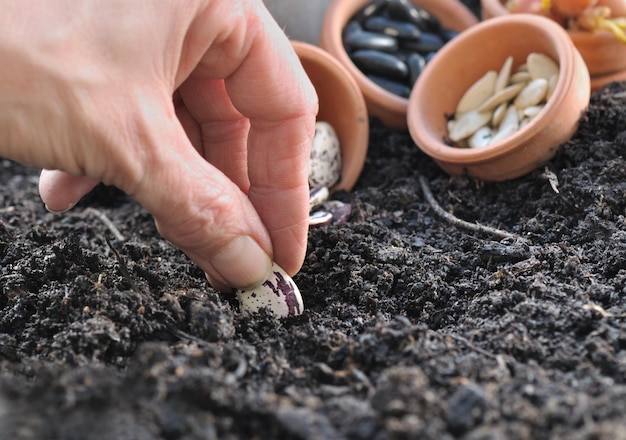Hi there! I’m Chloe, and if you’re anything like me, you’ve probably been thinking about ways to keep your garden healthy and thriving without relying on harsh chemicals. That’s where organic fertilizers come in! Over the past few years, I’ve switched to using only organic fertilizers in my garden, and the results have been amazing—not just for my plants but for the soil and the environment, too.
If you’re curious about how organic fertilizers work, what makes them different, or whether they’re worth it, this guide is for you. We will explore the key benefits of organic fertilizers and how they can transform your garden into a lush, thriving space. Let’s dig in (pun intended)!
1. Organic Fertilizers Improve Soil Health

One of the biggest reasons I switched to organic fertilizers is that they focus on the health of the soil, not just the plants. Unlike synthetic fertilizers, which can provide a quick nutrient boost but do little for the soil’s long-term health, organic fertilizers work with nature to build rich, fertile earth.
Organic fertilizers are made from natural materials like compost, manure, and plant-based substances. When applied to your garden, they not only feed your plants but also enrich the soil by increasing its organic matter. This leads to better water retention, improved soil structure, and a more balanced ecosystem.
Here’s what makes organic fertilizers a game-changer for soil health:
- They improve soil structure: Organic fertilizers help bind soil particles together, making the soil more porous and allowing roots to penetrate deeply.
- Increase in beneficial microbes: Organic fertilizers promote the growth of microbes and earthworms, which break down nutrients and make them available to plants.
- Water retention: Healthy soil retains water more effectively, reducing the need for frequent watering and helping plants thrive during dry periods.
After switching to organic fertilizers, my plants looked healthier and more resilient, and I didn’t have to water them nearly as much. It’s a win-win!
2. Slow-Release Nutrients for Stronger Plants
One thing I love about organic fertilizers is that they provide a steady, slow release of nutrients. Synthetic fertilizers often dump a large amount of nutrients into the soil all at once, which can lead to fast growth that isn’t sustainable. Organic fertilizers release nutrients slowly as organic matter breaks down over time, giving your plants a consistent and long-lasting food source.
In my garden, I’ve found that this slow-release effect leads to healthier, stronger plants. Instead of rapid bursts of growth that can lead to weak stems and shallow roots, organic fertilizers help plants grow steadily and develop deeper, more robust root systems.
Here’s how slow-release nutrients benefit your garden:
- Steady growth: Plants absorb nutrients gradually, preventing nutrient burn or rapid, weak growth.
- Less frequent applications: Since organic fertilizers break down over time, you don’t need to apply them as often as synthetic fertilizers.
- Healthier root systems: Deep roots lead to more resilient plants that can withstand drought and disease better.
3. Environmentally Friendly and Sustainable
One of the major concerns with synthetic fertilizers is the environmental impact. Excess fertilizers can run off into nearby water sources, leading to pollution and harming aquatic life. Organic fertilizers, on the other hand, are much more sustainable and eco-friendly.
When I started using organic fertilizers, I felt great knowing I wasn’t contributing to water pollution or harming beneficial insects and wildlife in my garden. Because they’re made from natural materials, organic fertilizers break down safely in the environment without leaving harmful residues behind.
Some environmental benefits of organic fertilizers include:
- Reduced risk of pollution: Organic fertilizers are less likely to leach into waterways and cause harmful algal blooms.
- No harmful chemicals: Unlike synthetic options, organic fertilizers don’t contain harsh chemicals that can harm plants, soil, or surrounding ecosystems.
- Supports biodiversity: Organic fertilizers promote healthy soil and help create a balanced ecosystem that supports beneficial insects, earthworms, and other organisms.
For those of us who care about living a greener lifestyle, switching to organic fertilizers is a great way to make a positive impact on the planet.
4. Safe for Plants, Pets, and People
I’ve always been mindful of what I use in my garden, especially since I have kids and pets running around. One of the biggest advantages of organic fertilizers is that they’re much safer than synthetic alternatives. You don’t have to worry about toxic chemicals entering your soil, water, or even the food you grow.
Since organic fertilizers are made from natural materials like compost, manure, and bone meal, they don’t contain harsh additives that can be harmful to humans, animals, and plants. This makes them a safer option for home gardens, especially if you’re growing fruits and vegetables for your family.
Safety benefits of organic fertilizers:
- Non-toxic ingredients: Organic fertilizers are made from natural, biodegradable ingredients that won’t harm pets or kids if they come into contact with them.
- Safer for edible gardens: Organic fertilizers are a safer choice for growing vegetables or herbs, ensuring food is free from harmful chemicals.
- Reduced risk of over-fertilization: Because organic fertilizers release nutrients slowly, the risk of over-fertilizing and damaging plants is lower.
I’ve found peace of mind in knowing that my garden is flourishing and safe for my family and pets to enjoy.
5. Improves the Long-Term Health of Your Garden

One of the most exciting things about using organic fertilizers is that they offer long-term benefits for your garden. While synthetic fertilizers might give you quick results, they don’t build up the health of your soil or plants over time. On the other hand, organic fertilisers focus on creating a sustainable, balanced ecosystem that will benefit your garden for years to come.
After using organic fertilizers for a few seasons, I’ve noticed that my soil has become richer and more fertile. The plants in my garden are healthier, and I’ve seen fewer issues with pests and diseases. Organic fertilizers help establish a strong foundation for continued growth and success by feeding the soil rather than just the plants.
How organic fertilizers support long-term garden health:
- Builds up organic matter: Organic fertilizers increase the amount of organic matter in the soil, improving its fertility and structure over time.
- Encourages a healthy ecosystem: With improved soil comes a healthier garden environment, complete with beneficial insects and natural pest control.
- Reduces dependency on fertilizers: As your soil health improves, you’ll find that you need to use less fertilizer in the future since the soil becomes self-sustaining.
Final Thoughts: Make the Switch to Organic Fertilizers Today
If you’re looking for a way to improve your garden’s health, reduce your environmental footprint, and grow stronger, healthier plants, organic fertilizers are the way to go. They’ve completely transformed my garden, and I’m confident they’ll do the same for yours!
Not only are organic fertilizers safer and more sustainable, but they also promote long-term soil health, making your garden more resilient and productive year after year. Whether you’re new to gardening or a seasoned pro, making the switch to organic fertilizers is one of the best decisions you can make for your garden—and the planet.
What about you? Have you tried using organic fertilizers in your garden? I’d love to hear about your experiences in the comments below. And if you found this guide helpful, don’t forget to share it with fellow gardeners looking to go green!
Let’s grow better, naturally!
